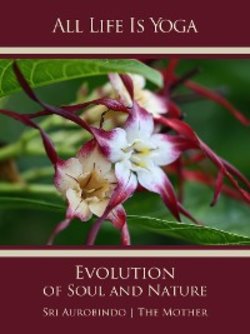Читать книгу All Life Is Yoga: Evolution of Soul and Nature - Sri Aurobindo - Страница 15
Chapter 6 The Ascending Unity
ОглавлениеWords of Sri Aurobindo
The human mind loves a clear simplicity of view; the more trenchant a statement, the more violently it is caught by it and inclined to acceptance. This is not only natural to our first crudity of thinking, and the more attractive because it makes things delightfully easy to handle and saves an immense amount of worry of enquiry and labour of reflection, but, modified, it accompanies us to the higher levels of a more watchful mentality. Alexander’s method with the fateful knot is our natural and favourite dealing with the tangled web of things, the easy cut, the royal way, the facile philosophy of this and not this, that and not that, a strong yes and no, a simple division, a pair of robust opposites, a clean cut of classification. Our reason acts by divisions, even our ordinary illogical thought is a stumbling and bungling summary analysis and arrangement of the experience that offers itself to us with such unending complexity. But the cleanest and clearest division is that which sets us most at ease, because it impresses on our still childlike intelligence a sense of conclusive and luminous simplicity.
But the average mind enamoured of a straight and plain thinking, for which, for a famous instance, that great doctor Johnson thought with the royal force dear to all strong men when he destroyed Berkeley’s whole philosophy by simply kicking a stone and saying “There I prove the reality of matter,” is not alone affected by this turn towards simple solutions. Even the philosopher, though he inclines to an intricate reasoning by the way, is best delighted when he can get by it to some magnificently conclusive conclusion, some clean-cutting distinction between Brahman and non-Brahman, Reality and unreality or any of the host of mental oppositions on which so many “isms” have been founded. These royal roads of philosophy have the advantage that they are highly and grandly cut for the steps of the metaphysical intellect and at the same time attract and overpower the ordinary mind by the grandiose eminence of the peak in which they end, some snow-white heaven-cutting Matterhorn of sovereign formula. What a magnificent exterminating sweep do we hear for instance in that old renowned sentence, brahma satyam jagan mithya, the Eternal alone is true, the universe is a lie, and how these four victorious words seem to settle the whole business of God and man and world and life at once and for ever in their uncompromising antithesis of affirmation and negation. But after all perhaps when we come to think more at large about the matter, we may find that Nature and Existence are not of the same mind as man in this respect, that there is here a great complexity which we must follow with patience and that those ways of thinking have most chance of a fruitful truth-yielding, which like the inspired thinking of the Upanishads take in many sides at once and reconcile many conflicting conclusions. One can hew material for a hundred philosophies out of the Upanishads as if from some bottomless Titans’ quarry and yet no more exhaust it than one can exhaust the opulent bosom of our mother Earth or the riches of our father Ether.
............
